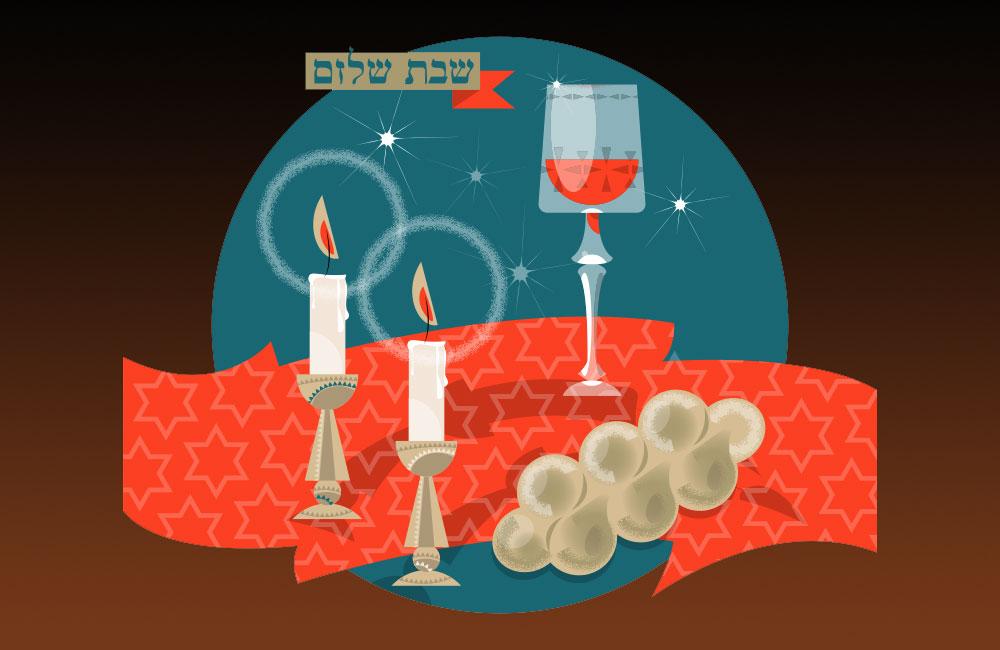If someone were to sit down with my kids and merrily announce, “I have good news! Shabbat, holidays, and kosher laws are all canceled!” their reaction would not be to leap for joy.
Thinking about the Sabbath puts a grin on their face and makes their mouths water. Anticipating the holidays makes their eyes gleam and sparkle. On the other hand, the mere thought about what typical American kids eat for lunch makes their stomach turn. Kids in observant Jewish families do not think of the Torah—even with all its restrictions—as a burden.
Paul is often accused of teaching that the Torah’s commands—especially dietary laws and calendar observances—are not incumbent upon a follower of Yeshua, whether Jew or Gentile. However, mistaken assumptions about Paul can lead to dramatically incorrect readings.
In my book Biblically Kosher, I address many passages that are commonly interpreted as a rejection of the dietary laws. I find that when Paul is seen as a faithful and observant Jew, his brilliant teachings inspire us to pursue Torah with joy.
This passage from Colossians is a perfect example of such a commonly misunderstood teaching:
Therefore let no one pass judgment on you in questions of food and drink, or with regard to a festival or a new moon or a Sabbath. These are a shadow of the things to come, but the substance belongs to Christ. (Colossians 2:16-17)
According to conventional Christian interpretations of this passage, Paul was advising the Colossians to defy anyone who instructed them to observe the Torah’s laws about food, Sabbaths, and holidays. For example, the ESV Study Bible remarks on verse 17 that “Christians are no longer obligated to observe OT dietary laws (‘food and drink’) or festivals, holidays, and special days (‘a festival…new moon…Sabbath’), for what these things foreshadowed has been fulfilled in Christ.”
This explanation raises a difficulty. How is “they are a shadow of Messiah” a reason not to observe? Are the Colossians then better off with no holidays whatsoever, or with idolatrous or secular festivals that have no connection to the Messiah? Imagine me telling my children, “No building a sukkah this year. No Passover Seder. Jesus came and took all that away.” They would look at me like I’m the Grinch!
In the first century, there was no alternative to the Jewish calendar and holiday cycle other than a pagan one. Now that the Colossians are Christians, does that mean they cannot count months by the Jewish calendar and must use the Roman one instead? Surely Paul would not advocate this.
Asceticism
In context, we can see that Paul is criticizing the practice and ideology of asceticism, which is the belief that by denying oneself food and physical comforts, one is able to gain supernatural revelation. While it is not common in the Western world today, ascetic practices were at one time popular among certain segments of the early Jewish community.
Ancient mystical literature describes how individuals would undertake severe and lengthy fasts, assume a state of extreme ritual purity, recite secret sayings, and utter odes and angelic names in order to catch a glimpse of the heavens.
Mainstream Jewish thought, while appreciative of the value of moderation and occasional fasting, does not require any such obsessive regimen of utter abstinence and isolation. Rather, God created the world for human enjoyment as an opportunity to give thanks and praise to him. The Torah encourages us to “eat and be full, and…bless the LORD” (Deuteronomy 8:10).
In fact, the sages insisted that “in the future, a person will need to give justification and an accounting for all that his eye saw but he did not eat” (y.Kiddushin 4:12).
Why then does it mention the Sabbath, Rosh Chodesh, and holidays? These are times of festivity and delight. Paul’s ascetic opponents criticized the Colossians for gathering to celebrate, to eat meat, and to drink wine on the Sabbath and holidays instead of quarantining themselves in self-abasement—a path that they perceived as more pious.
Paul’s message to the Colossians was that they are not to let others judge them for enjoying food and drink and for celebrating and delighting in the holidays according to the Torah and Jewish custom.
Things to Come
The next verse says, “These are a shadow of the things to come, but the substance belongs to Christ” (Colossians 2:17). This does not mean that these holidays are now obsolete in light of the knowledge of the Messiah. Rather, the phrase “things to come” is reminiscent of the Hebrew phrase atid lavo, which refers to the Messianic Kingdom that we still await. Judaism teaches that the Sabbath and the holidays are a foretaste of the World to Come, a time of joy and delight, of abundant prosperity and ample food.

In what sense does the substance belong to Messiah? In contrast to the Sabbath holidays which give us a small glimpse of that future world, our resurrected King Yeshua is an actual inhabitant of that world. We, in turn, are members of his kingdom and constitute an enclave of the Messianic Kingdom here in this current age. How much more so, then, should we be allowed to enjoy good food and drink and celebrate the Sabbath and festivals!
No wonder my children’s eyes twinkle every time the Sabbath candles are lit. They are children of the Messianic Kingdom. Holy days and times, for them, are a little taste of home.
Source: First Fruits of Zion
